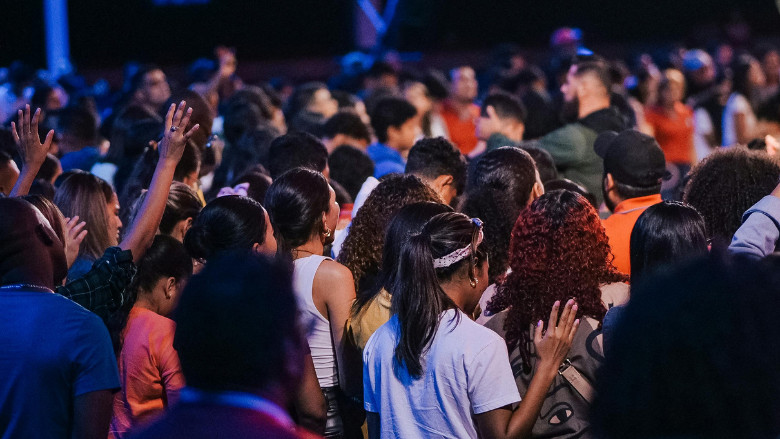
Stock Photo – Canva
By Brett Salkeld
Have you ever been sitting in a parked car when something catches your peripheral vision? In a panic, you imagine your car has started to roll forward and you slam on the brakes — but nothing happens. After a sickening moment, your brain recalibrates. You realize your car was never moving in the first place. The car next to you had started to move. You were sitting still all along.
This past Easter, Catholic dioceses around the world reported increases — often dramatic increases — in the number of people entering the Church. This is not what was predicted. We Catholics have usually been told to prepare for decline, at least in the West. And there was a further implication: As the rest of the world advanced technologically and economically, the decline of religion already seen in the West would spread there too. At best, the current growth of the Church in the developing world was a temporary reprieve from inevitable decline.
But evidence suggests there was something fundamentally wrong with this picture. Numerous factors — social, economic, political, ideological — have led to the decline of religious belief and practice in the developed world. But would those factors, over time, actually lead to a world in which religious belief failed to make sense?
It seems, rather, that as those factors have been given freer and freer rein, they have led in the opposite direction. They have led to a world in which the questions that concern religion have become more pointed. The typical convert to the Church this past Easter was a young person — disproportionately, a young man — from a broken home who was raised with little to no exposure to religion. And what they encountered in the world did not address the questions at the center of their existence.
Building community
The new converts tell us this explicitly. The world that offered them all kinds of theoretical freedom, to do and believe and become whatever they desired, did not give them any criteria by which they might judge the value of this or that desire. The ability to be or do theoretically everything is undermined by a total lack of reason to be or do anything. The foundation for their ostensible freedom was quicksand.
The human soul cannot do without truth. We seek it like the deer longing for water. A culture that abandons this pursuit might manage to paper over our needs in the short term. But it is fundamentally inhuman and cannot survive in the long term.
Taking discipleship seriously
It has looked, for some time, like the Church was in decline. And there are ways, of course, in which that was true. But if the Church does indeed propose the truth about the human person and our place in the cosmos, such declines are only ever apparent. Truth will always assert itself.
All of which is not, let us be careful to note, a reason for triumphalism. Just as surely as the Church will not fail completely, it will continue to fail in the particulars. As the culture collapses around us, many people will join the Church looking for something the culture cannot offer. But we will need to take discipleship all the more seriously.
A deacon recently told me that more and more people are coming to his parish because they see the Church as an antidote to the craziness in the world, but they haven’t yet met Jesus. Without Jesus, though, the Church becomes just one more faction in the culture wars, one more car that might just roll away.
A Church that seems in the ascendant is not free of dangers. The powers of this world are always happy to co-opt the Church for their own ends. We will certainly welcome those seeking refuge from a world that seems off its moorings, but we must also take care not to import the tribalism of the world into the Church itself.
It is one thing to hit the brakes hard when things seem out of control. It is another to find what T.S. Eliot so aptly dubbed “the still point of the turning world.”
It has been interesting to watch the response of the atheist community to this development. It has been atheist dogma for some time that religion existed to answer questions that we can now answer with science, and as scientific understanding of the natural world grew, religion would necessarily falter. As that hypothesis came to seem less and less plausible, it required supplementation.
Religion, we are now told, also has a social and communal function. People are lonely and in need of connection, and religion offers that in a way that other institutions struggle to achieve. This is true as far as it goes. But it leaves one essential question: Why is religion so much better at forming real community than other institutions?
Community does not work well as a goal in itself. It requires common purpose, common ideals, common vision. To be itself, it must be committed to something beyond itself. Religion, and Catholicism in particular, is good at community because it proposes a vision of life and the world that is coherent and compelling and allows a person to make sense of his or her life.

